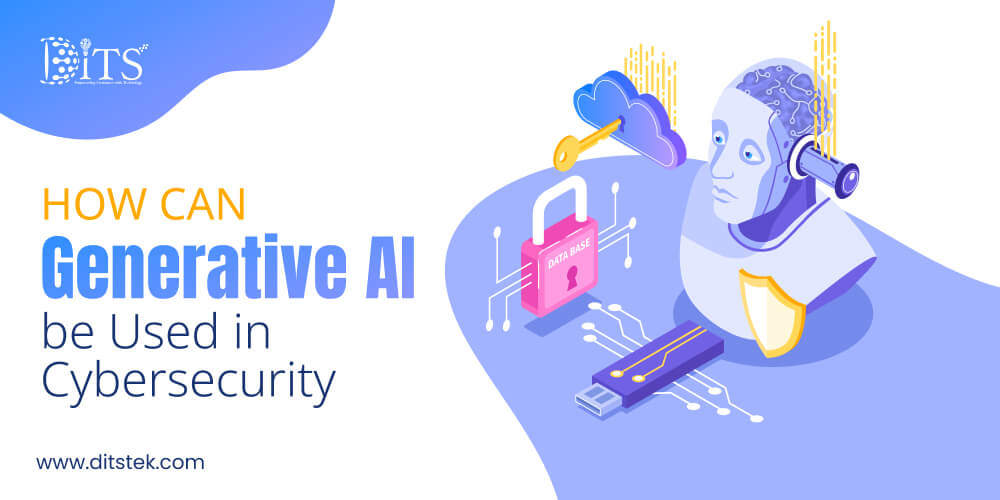Complete Guide to ERP Software Development
Table Of Content
Published Date :
02 May 2025
Only a businessperson completely understands that it's easy to run a business and generate revenue, but streamlining the company is one of the most challenging things for any firm, regardless of size. Integrating Enterprise Resource Planning (ERP) software helps businesses make data-driven decisions and streamline operations for all departments. From the finance department of the company to HR operations, customer engagement, and inventory management; an advanced ERP helps to deliver excellent results by streamlining the business process.
What Stats Say About ERP Implementation
- A 2023 survey revealed that retailers, manufacturers, and distributors who implemented ERP into their businesses have achieved an 85% success rate.
- 77% of the businesses that implemented ERP stated that the implementation played a pivotal role in their success.
- Small and mid-size businesses implement ERP into the process within three to nine months to streamline the process and data-driven decision-making process.
- 66% of the organizations found that ERP implementation improved operational efficiency.
What Is ERP Software
ERP (Enterprise Resource Planning) software is a one-stop solution for business operations. It is a centralized management system that manages & improves core business functions across multiple departments. It focuses on streamlining operations, reducing manual tasks, and improving data visibility and decision-making. The ERP implementation in the business helps to enhance and scale processes like HR, finance, customer engagement, and inventory management. You can integrate or build into two types of ERP: 1. Custom ERP development, 2. Off-the-shelf ERP development; both have their pros and cons.
Need Help Developing ERP Software?
Our team specializes in end-to-end ERP development—scalable, secure, and built for your business goals.
Roles of ERP in Various Departments

Integrating ERP into the business is a one-stop solution to streamline the custom software development process and helps the company communicate within various departments to run the business smoothly. Here are the roles and responsibilities that ERP will help the platform with:
ERP in HR Department
The ERP helps the HR department of the company to automate, collect data, and automate the process of the employees, and also helps to keep the data centralized. The features and tools of ERP help the HRD to keep track of performance, ensure compliance, and recognize talent across all departments.
- Centralized Employee Data: Maintains accurate records for recruitment, onboarding, training, and evaluation.
- Performance Management: Tracks employee goals, reviews, and KPIs for data-driven development plans.
- Training & Development: Manages skill assessments, course enrollments, and learning progress.
- Payroll & Compliance: Automates salary processing, tax deductions, and labor law compliance.
ERP in Finance & Accounting
The finance & accounting department is the backbone of any business; even a minor mistake in the process, audit, or bookkeeping can lead to substantial financial loss. An ERP software development company in USA helps firms provide an excellent ERP solution. It helps avoid minor mistakes, gets real-time data, and automates the finance process.
- Automated Financial Transactions: Streamlines processes like invoicing, payments, and journal entries to reduce manual work.
- Real-Time Financial Reporting: Provides up-to-date reports, dashboards, and analytics for better decision-making.
- Regulatory Compliance: Helps maintain audit trails and ensures adherence to tax laws and accounting standards.
- Budgeting & Forecasting: Supports planning by analyzing historical data and predicting future trends.
ERP in Inventory Management
From overstock management to preventing stockouts and providing real-time data on the products, ERP helps the platform curate and manage the inventory more accurately and efficiently. ERP software integration automates the reordering process and ensures effective dynamic demand forecasting through data from sales, supply, and finance.
Key Roles Include:
- Real-Time Stock Tracking: Monitor inventory across warehouses instantly.
- Automated Reordering: Trigger purchase orders when stock hits minimum levels.
- Demand Forecasting: Predict future inventory needs based on sales trends.
- Inventory Valuation & Audits: Ensure accurate costing and regulatory compliance.
Role of ERP in CRM
Where CRM focuses on managing customer interaction, the ERP software solution ensures that customers' data flow is integrated with other departments, including finance, sales, inventory, billing, and support.
Key Roles in CRM:
- Centralized Customer Data: Combines sales, billing, and service info for a 360° customer view.
- Improved Order Management: Syncs customer orders with inventory and delivery schedules.
- Streamlined Communication: Automates updates across departments for consistent customer interactions.
- Better Customer Insights: Enables data-driven decisions through integrated reporting and analytics.
Boost Business Efficiency with a Smart ERP Solution!
Unify HR, Finance, Inventory & CRM with one ERP system. Streamline operations, improve accuracy & make better decisions.
Which Industries can Benefit from ERP Software Development

ERP software solution is perfect for almost all industries, from healthcare to edtech, manufacturing, and the mining industry. Businesses can hire an ERP software development company in USA to integrate the ERP into the existing business without interrupting the process. The ERP software is highly adaptable and can be customized as per the business and industry requirements.
ERP in Healthcare
Healthcare is one of the most delicate industries, and even a minor error can lead to significant loss of records or finances. ERP software integration helps the healthcare industry to centralize patient records, manage medical inventory, and automate the billing process. Getting the ERP with the AI technology boosts efficiency, handles repetitive tasks, and improves patient care with patients' medical histories. The combination of AI and ERP in healthcare will boost the business operation across all departments and provide faster access to critical information.
ERP in Finance
From reducing the manual workload to providing transparent financial insights, ERP helps the financial sector to be more accurate. A high-end ERP software automates the core business functions, including accounting, compliance, auditing, and real-time financial reports. It also helps the banking & finance business with the data-driven decision-making process and also helps with risk analysis.
ERP in Retail Industry
The ERP technology helps the retail business with operational efficiency, reduces overstock, and improves users' shopping experience from shopping to payment. ERP software creates a centralized environment to provide easy and accurate business operations. Getting the ERP software with AI technology boosts sales, helps with fraud detection, and manages repetitive tasks. The interweaving of AI and ERP into the retail business will help the business to grow more rapidly and accurately.
ERP in Edtech
ERP software helps track students' progress, manage curriculum delivery, schedule staff and classes, and handle tuition billing. It creates a centralized environment for the data across academic and administrative departments, improving communication, resource planning, and institutional performance while offering real-time insights into academic operations. Whether it's a school, a professional skill training business, or an open learning platform, ERP helps each type of business.
ERP in Real Estate
A custom ERP software helps real estate businesses manage property listings, lease management, rent payment, and sales tracking with real-time insights. ERP helps real estate businesses streamline operations and sales and improve client communication, from easy payment methods to portfolio insights.
Types of ERP Software Solutions

There are three main types of ERPs: custom ERP solution, cloud, and open source, and each one can be integrated into the business. Many options are available for the ERP that can suit your business size and needs, but if anyone wants to get a readymade solution, it comes with some limitations. Getting a custom ERP software solution to meet the business needs most accurately and without any restrictions is always preferable.
Cloud-based ERP
This is the perfect example of a readymade solution that works on a software as a service (SaaS) model. It can also be customized per the business requirements, but there are a few limitations with the cloud-based ERP software, as only the admin holds access for the customization. It is a cost-effective option but comes with limitations.
Open-source ERP
It is a freemium model of ERP software solution provided by the ERP SaaS companies. It comes with minimal features and customization options for businesses. It is suitable for a small business, but slowly and gradually, any firm looking to grow and streamline its business operation should get the custom RP software.
Custom ERP Development
A custom ERP software development is the perfect solution if any business is looking for a business-specific solution. Building a high-end ERP software from scratch allows the business platform to be molded per the business's needs. With the custom ERP software and AI technology, companies can feed the data and set the parameters for the business automation. The platform will be solely dedicated to the specific business, with all the credentials and codes.
Get Custom ERP Software Solution to Streamline & Automate Business!
Cost To Build Custom ERP Software
A custom ERP software solution development costs $30,000 and can go up to $300,000. The development of the cost of ERP software from scratch entirely depends on multiple factors, including the complexity of ERP software, engagement model, industry, etc.
| Project Size | Description | Key Features | Development Time | Estimated Cost (USD) |
| Basic ERP | For small businesses with limited modules | Basic HR, Accounting, Inventory | 3–6 months | $25,000 – $50,000 |
| Mid-Level ERP | For growing businesses needing multi-department integration | HR, CRM, Finance, Inventory, Basic Analytics | 6–9 months | $50,000 – $120,000 |
| Enterprise ERP | For large businesses with high customization needs | Full suite + Automation, Integrations, Reporting, Mobile Access | 9–15 months | $120,000 – $300,000+ |
| Cloud-Based ERP (SaaS) | ERP hosted on cloud with subscription or one-time build | All core modules + Cloud hosting, Multi-tenant setup | 6–12 months | $80,000 – $250,000 |
| Custom ERP with AI/BI | Advanced ERP with AI-powered insights & Business Intelligence | Predictive analytics, AI reporting, real-time dashboards | 12–18 months | $150,000 – $300,000+ |
How To Get Custom ERP Software for Business
ERP is a crucial software that interweaves multiple departments to manage and deliver excellent results for the business. Each developmental stage is important for the business to achieve accuracy and transparency.
Research
Start the process by researching how the implementation of ERP can benefit the business, how much it will cost to build the software, the time it will take to develop it, etc. In-depth market research helps the company to get more clarity on the implementation.
Define Goals
Having a clear goal to build enterprise resource planning software helps to deal with business challenges, process gaps, and key objectives. Defining clear goals helps the platform to ensure alignment, fulfill business needs, and provide a data-driven decision-making process.
Decide Type of ERP
Choose from a custom, open-source, or cloud-based ERP software solution. Each type of ERP has its pros and cons. Custom ERP software development can be expensive, but it comes with complete source code and is customized to the business's needs.
Hire ERP Software Development Company
In-house vs outsourced ERP development companies are better for an effective and reliable solution! See the comparison:
| Criteria | In-House Development | Outsourced Development (Recommended) |
| Cost | High due to full-time salaries, benefits, infrastructure | Lower and more flexible—pay only for work delivered |
| Expertise | May lack ERP-specific experience; requires hiring/training | Access to specialized ERP experts with proven portfolios |
| Time to Market | Slower due to recruitment, onboarding, and internal alignment | Faster delivery with established teams and agile workflows |
| Risk & Accountability | Higher risk of delays and inefficiency | Vetted teams with SLAs and project accountability |
Hire a leading ERP software development company in USA to get high-end ERP software with advanced and AI-integrated features and a secure framework!
UI/UX Development
Once you partner with the ERP development company, they will be responsible for providing a blueprint and UI/UX designs for the software with an easy-to-understand feature.
AI Development
As the world has moved to artificial intelligence technology drastically, it is impossible for any business not to think of being in the competitive field without integrating AI. AI software development helps ERP provide more accurate results, data-driven predictive analysis, etc.
DITS: A Perfect Partner for Custom ERP Software Development
Get a team of dedicated ERP developers with years of experience in IT services. DITS works on multiple engagement models for software development with customized strategies. We have 8+ years of experience in the industry and have served clients in the USA, UK, Canada, Germany, Japan, UAE, Australia, etc.
- 100+ experienced software developers
- 40% reduction in development cost
- 97% client retention rate
- 100% customer satisfaction
- Proven strategies for ERP software development
- On-time project delivery
Conclusion
Streamline operations, maintain records accurately, track employee performance, manage skill assessment, automate payment process, and create real-time reports with high-end ERP software development. From healthcare to retail and finance industries, we provide custom ERP solutions for all sizes and types of businesses.
FAQs
How long does it take to develop an ERP system?
The development time for an ERP software can be between 3 and 18 months, depending on the type of software. It depends on the complexity of the software, key features, technology used, chosen engagement model, etc.
Should I choose a cloud-based or on-premise ERP?
It should be completely your call whether a custom or cloud-based solution. Getting a custom ERP software development will provide complete access, the option to optimize, and customize as per the changes in business requirements. With the cloud-based third-party ERP software, the business has to be dependent on the parent company for the upgrade.
What technologies are used in ERP development?
ERP systems commonly use technologies like Java, .NET, Python for back-end; React or Angular for front-end; and databases like MySQL or PostgreSQL. Cloud platforms such as AWS or Azure are also widely used.
Why should I outsource ERP development instead of building in-house?
Outsourcing offers faster time-to-market, access to experienced developers, lower costs, and scalable resources. It reduces the burden of hiring, training, and infrastructure while ensuring high-quality delivery with expert support.

Dinesh Thakur
21+ years of IT software development experience in different domains like Business Automation, Healthcare, Retail, Workflow automation, Transportation and logistics, Compliance, Risk Mitigation, POS, etc. Hands-on experience in dealing with overseas clients and providing them with an apt solution to their business needs.
Recent Posts

Learn how generative AI enhances cybersecurity through intelligent threat detection, automated incident response, predictive risk modeling, and embedded security within modern enterprise systems.

AI in agriculture helps improve efficiency, soil health, crop production and reduce costs by up to 30%. Read our blog to know in detail.

Looking to outsource your next project? Learn how to outsource software development without sacrificing quality. Find the right team, avoid pitfalls, and boost project success.